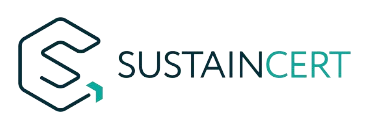THE GOLD STANDARD FOUNDATION (GSF)

The Gold Standard is a foundation established in 2003 by WWF and other international NGOs that operates an offset standard focusing on environmental and social benefits. It can also be applied as an add-on quality label to CDM activities. Eligible sectors are RE, EE, waste, land use, forestry (afforestation/reforestation, agriculture, and soil organic carbon), and water (supply, purification, and conservation). Under this standard, more than 550 registered projects have achieved emission reductions of about 78 million tCO2eq in the period 2008-2017. The foundation has launched a new generation of standards with the dual objective of pursuing climate action and the fulfillment of SDGs, Gold Standard for the Global Goals (GS4GG) in 2017.
SUSTAINCERT (SC)

SustainCERT is a for-profit, mission-driven company, with the goal to invest in technology to bring down barriers using best practice impact verification for climate and sustainable development. SustainCERT was created in 2018 in order to independently and impartially certify Gold Standard projects and with the ambition to mainstream credible climate and SDG impact accounting. We started with Gold Standard, but are not limited to Gold Standard, because we’re independent and believe that we need to support best practices wherever they are. Our primary mandate is to bring technology to Gold Standard users, so we manage the Gold Standard portfolio from a verification perspective. But we are also expanding beyond Gold Standards with the goal of leveraging our technology and software platform, to make it easier, simple, and affordable for users to go through the Gold Standards verification process or other standards processes as required.
We help project developers and corporates quantify and verify carbon emissions accurately and certify carbon credits and corporate claims with international frameworks such as Gold Standard for the Global Goals, the Greenhouse Gas Protocol, and the Sustainable Development Goals. In the future, we will also work with the Verra (verified carbon standard).
We are in the development stage of an impact emissions factor software that helps accurately account, allocate, and report Scope 3 emissions among value chain players. This software will simplify processes for data collection, calculation, and verification.
We have also expanded into value chain emissions where it is one of the founding partners of the Value Change Initiative – a pre-competitive collaboration platform for corporates and civil society to co-develop and implement value chain emissions accounting rules. This initiative has over 60 organizations, 8 sectors, and more than 130 technical representatives and partners participating since 2018.
Our markets include:
- Environmental Markets (we also call them carbon markets)
- Corporate Reporting (we also call it Scope 3 or Value Change)
How did SustainCERT start?
To best respond to ISEAL requirements for independent and impartial certification, Gold Standard spin-off its certification services from the standards body to SustainCERT. Next to helping project developers and corporates quantify and verify carbon emissions accurately as well as certify carbon credits and corporate claims with GS4GG, we have also expanded into value chain emissions. We are developing innovative software that simplifies processes for data collection, calculation, and verification, reimagining a future where the issuance of carbon credits and other impact claims becomes scalable.
SustainCERT was created in 2018 with one ambition: to mainstream credible climate and SDG impact accounting and certification.
Read about SustainCERT (here), our manifesto, story, mission, vision, and markets.
VALIDATION AND VERIFICATION BODIES (VVB)
Validation and Verification bodies (VVBs), play a vital role in upholding the integrity and credibility of registered projects. Their responsibility lies in conducting third-party assessments independently to verify that projects meet the requirements set by the GS4GG Standard. Operating within the Monitoring, Reporting, and Verification (MRV) framework, VVBs ensure impartiality and serve as guardians of project quality and compliance.
*Impartiality can be defined as the characteristic or condition of being unbiased, fair, and neutral when making judgments or decisions. It entails treating all individuals or parties without favoritism or prejudice and making assessments based on objective criteria rather than personal opinions or preferences.
* More information on VVBs in lessons 4 and 7
